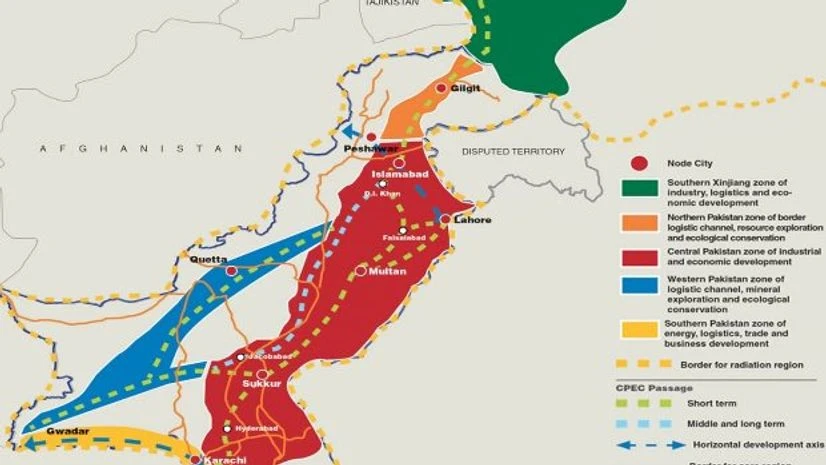China is maneuvering Pakistan to cripple India via the $62 billion China-Pakistan Economic Corridor (CPEC) project, which it has described and projected as a transformative economic initiative, an Ame rican expert on Asian affairs has claimed.
In a recent article for the Foreign Policy magazine, Professor Carol Christine, Associate Professor in the Security Studies Program at Georgetown University's Edmund A Walsh School of Foreign Service USA, said that she has spoken out against the dangers of CPEC at Balochistan-related events held here on several occasions.
In her recent article, Professor Christine wrote, "The local Baloch community is displeased with the development plan because it will predominantly alter the demography of the area. Prior to the commencement of Gwadar's expansion, the estimated population of the region was 70,000, however, If the project continues to reach an attainment, the populace would be around two million - most of whom will be non-native residents, though many penniless Baloch has already been dispersed from the area."
She also pointed out to the fact that ardent Baloch militants have attacked these projects and Chinese personnel at frequent intervals, but without much success because they lack funds and training.
Beijing has projected Gwadar's development aggressively and dignified it with the title 'Gateway City' under the USD 62 billion CPEC.
Also Read
Baloch freedom fighters continue to pledge to resist and obstruct the Chinese plans to occupy Gwadar, and their concerns are gradually eliciting the support of Washington DC
Local Baloch communities are vexed and are engaging in illicit activities to halt development.
Baloch National Movement leader and former fisheries minister Kachkol Ali, who is living in exile in Norway, recently tweeted, "China is violating Article 8 of the Declaration on the Rights of Indigenous Peoples."
The aforementioned article of the UN Declaration iterates the native community and individual's prerogative not to be subjected to coerced assimilation or shatter their cultural norms. It also states that countries are obliged to provide effective mechanisms to prevent any action which may deprive the indigenous people of their integrity and divest them out of their realm, resources and region.
The oppressed Baloch, according to The Nation, feel that their ancient land will be taken over by the Chinese; and that approximately six times more Chinese will be accommodated in the Gwadar city by the year 2023.
This is substantiated by a recent report, published in The News International newspaper that revealed that a mega housing project "China-Pak Hills" has been announced by the China-Pak Investment Corporation (CPIC).
The CEO of the corporation, Jian Zheng, disclosed plans to finance a $500 million in the first phase of the much criticized housing project China-Pak Hills, which will expectedly accommodate almost half-a-million white collar Chinese by 2023.
CPIC will complete the unprecedented development project, which stretches over 10 million square feet, in three phases.
Though the Pakistan government has rebutted claims that the Gwadar Port Authority has permitted construction of the project, calling it bogus, CPIC has put forward documentary evidence; depicting the possession of "no objection" certificate with the company from the concerned authority for the International Port City Project.
What is an added worry is that both the armies of Pakistan and China have promised to transform Gwadar into another Shenzen, a major city in Guangdong Province, China. Shenzen was once stricken with poverty in 1979, but at present, it is symbol of a strong Chinese economy.
New Delhi is simmering over Beijing's plan to extend its influence through Gwadar Port, which it considers to be a part of the Indian Ocean. It is also hard to ignore the United States' deep interest in the warm waters of the Arabian or Persian Gulf Sea, and therefore, inconceivable that it will allow China to take over Gwadar easily.

)
